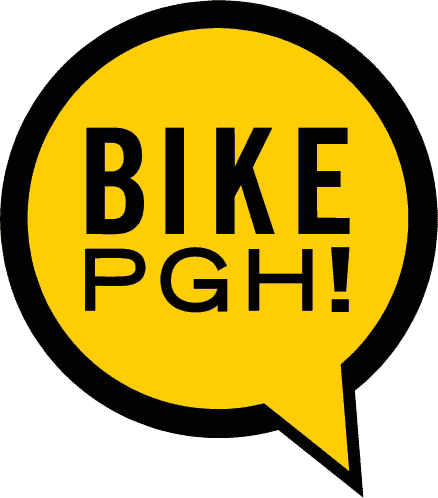Ha he’s probably the most controversial figure in cycling, because of his anti-bike lanes advocacy. “Effective cycling” is a great book with a lot of good advice but I know people who won’t read it just because of this.
RIP.
jonawebb
2020-04-26 13:34:25
We all need to take the lane sometime.
dave
2020-04-26 13:56:01
I never met him, but can recall Facebook conversations about cycling advocacy within the past year or two where we were both in the conversation.
When I worked at Carnegie Learning, @lyle had a copy of "Effective Cycling" on a bookshelf about three feet away, which made for an effective distraction at times.
That distinction between bike lane advocacy and lane positioning advocacy is right here in Pittsburgh, too. Bike-Pgh pushes bike lanes, not lane positioning. Like Lyle, I align myself with the latter, which is why although I send B-P $, I am not really active in what they're doing. Lyle won't have anything to do with them at all.
I think Lyle and I are right, though. The latter approach is tougher. It means actually changing things, like police enforcement, police behavior, state law about speed enforcement with radar, making it more difficult to get and keep a license. Because it's tougher, B-P doesn't go there. It's easier to push for getting bike lanes. And B-P doesn't do a damn thing beyond city limits, either, which makes it doubly hard for people like me.
Forester was right. Now, jam it down people's throats, please.
stuinmccandless
2020-05-01 06:37:14
I tend to disagree with Mr Forester's attitudes about advocacy and his disdain for dedicated bike infrastructure. Though, I do own his book and find many of his techniques useful, especially when applied where no dedicated bike infrastructure is present. I'll probably give it a glance this weekend, I'm sure there is more to learn from it.
We all have our different interpretations of how we should ride and how we should advocate, and I think that's okay.
benzo
2020-05-01 13:26:16
Forester was a man of his times.
Described (accurately, IMO) by Wikipedia as"famously abrasive and inflexible…" Usually this makes for very poor advocacy. But in his prime, the 1970's, utility biking was so rare and outside the norm, that any adult simply riding a bike was written off as outside the envelope.
IIRC, in one of Forester's books, he mentioned that if it became known at his engineering workplace that he would occasionally ride a bike to work, all opportunity for advancement could be abandoned.
I went back to the little mining town where I lived in the early 1960's, which is a good biking town now, and my friends and I tried to recall if we ever - even once - saw an adult on a bicycle. One of the guys recalled a mutual acquaintance's dad getting on a bike once, as a joke.
mick
2020-05-04 16:59:59
My father rode a bicycle (a 3 speed Raleigh built in 1942) several miles to work in San Jose, CA, every day from 1963 until the 1990s. This wasn't just a California thing. Before that he had used the bicycle for decades when he worked in New England, where he grew up. Bike-commuting was rare and eccentric, but not unheard of. I don't think he ever owned a bike helmet.
Growing up in San Jose, my high school had extensive covered bike racks where hundreds of students parked their bikes, every day. There were lots of heavy 3-speeds with baskets, and some "10 speed" racing bikes, which were the new thing. No bike lanes, so cyclists shared the roads with cars, mostly hugging the gutters. There were thoughtless drivers, as always, but there were fewer cars then, people often drove with the windows open -- cars of that era weren't the cocoons they are today, and people drove slower. More of the students biked to school than drove themselves there, I think.
paulheckbert
2020-05-05 21:08:58
When I graduated from Mt Lebanon HS in 1971, they would not allow students to ride bikes to school. They would not allow student to ride to the park near the school on their way to school.
I'm sure there were places where there was some utility biking. Universities for one.
I'm guessing it depended a lot on your work culture. I can't imagine the steel companies allowing that among non-union workers. And biking in Pittsburgh, with the hills, narrow roads, and trolley tracks would have been very hard anyhow.
mick
2020-05-06 17:55:44
Could someone from the central office for BikePgh weigh in on if there is an official stance on taking the lane for cyclists? I don’t think lobbying for the various levels of bike lanes and Foresters idea of “taking the lane” (which is essentially what all of those sparrows indicate) are mutually exclusive.
As a a League of American Cyclist Certified Instructor, which I believe most of Bike Pittsburgh’s instructors are, the League, and therefore Bike Pittsburgh, teaches taking the lane when riding on a road.
dave
2020-05-06 19:49:58
